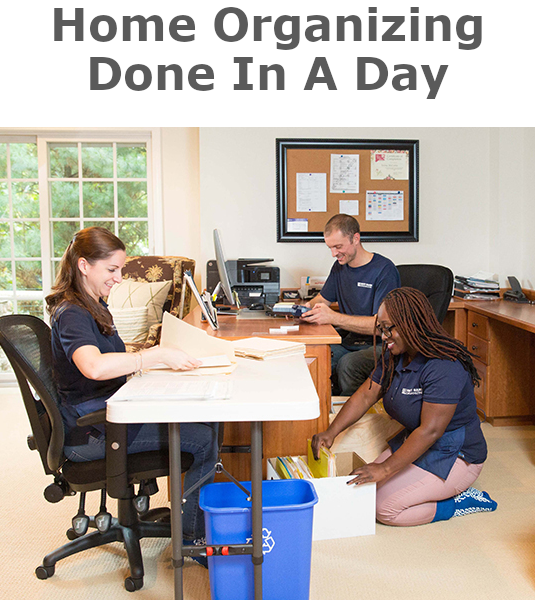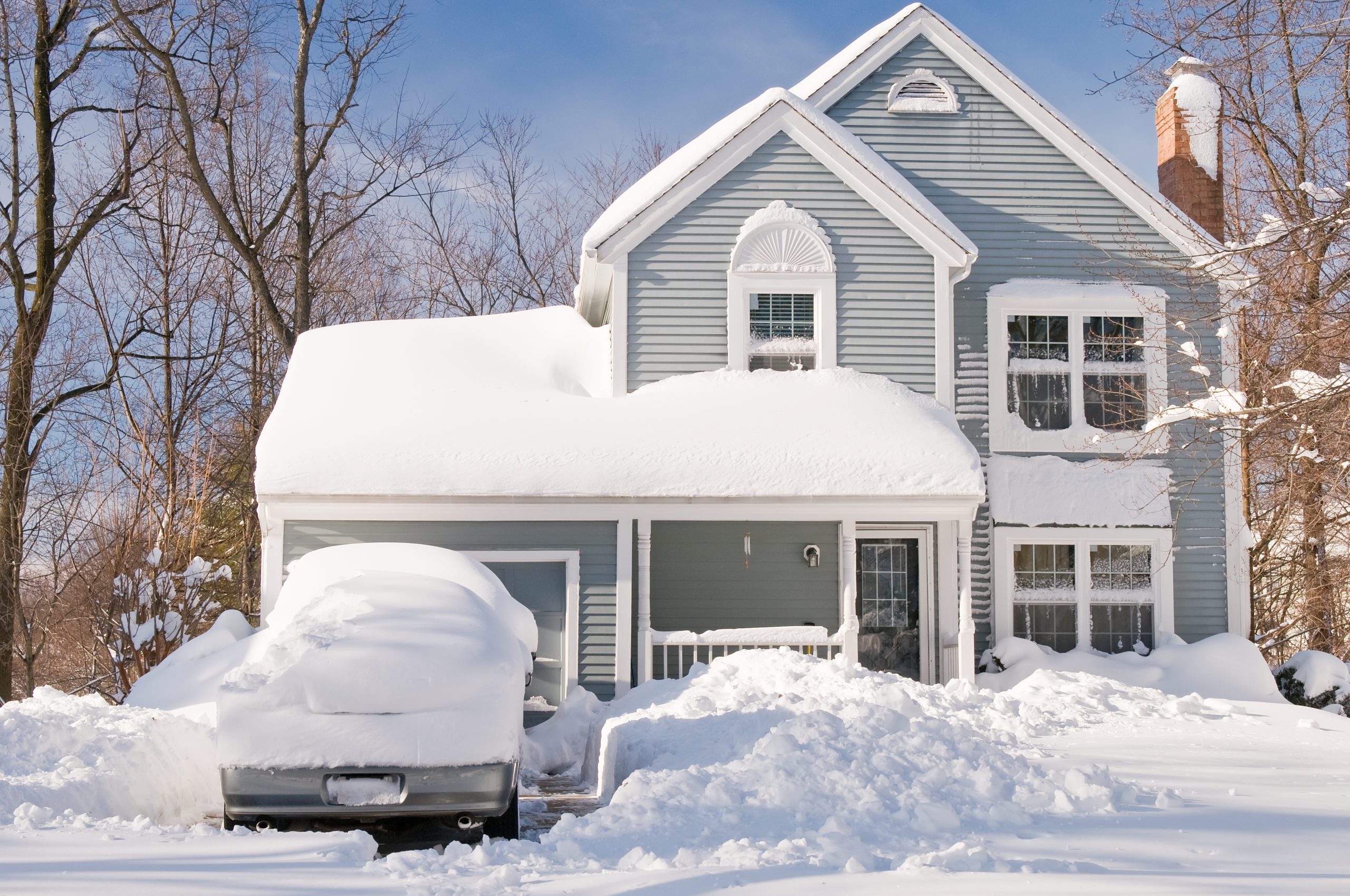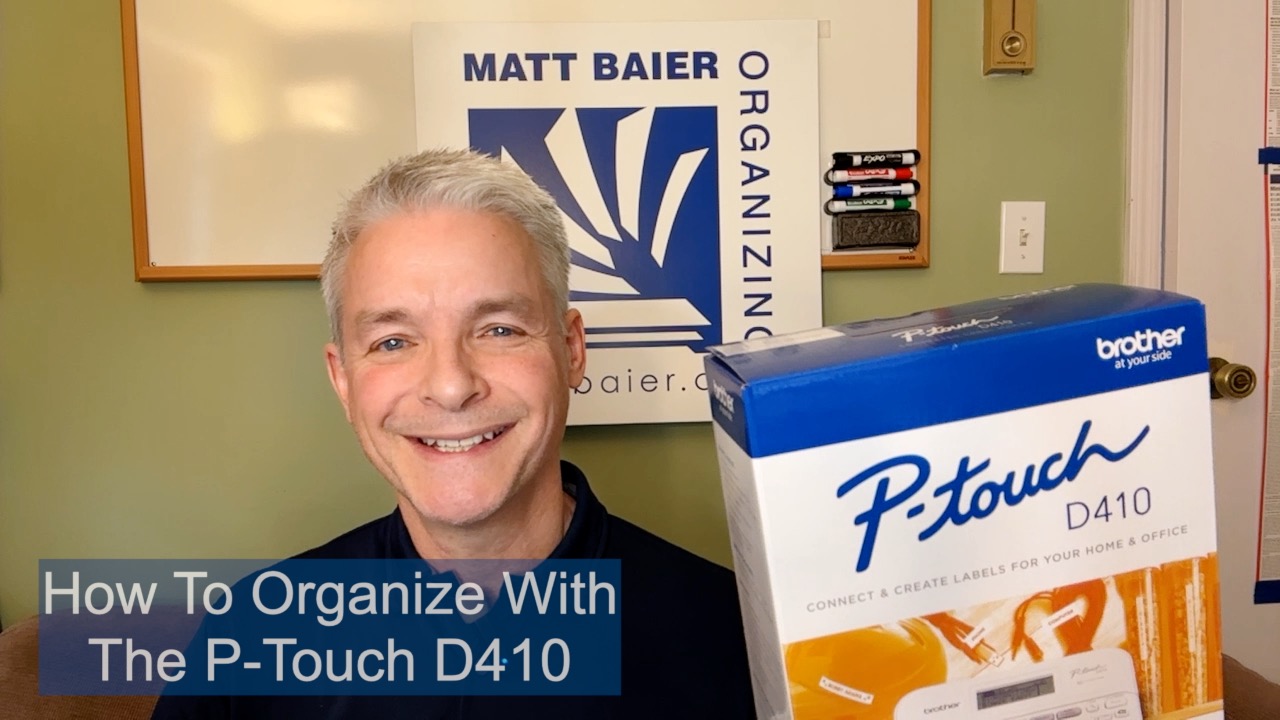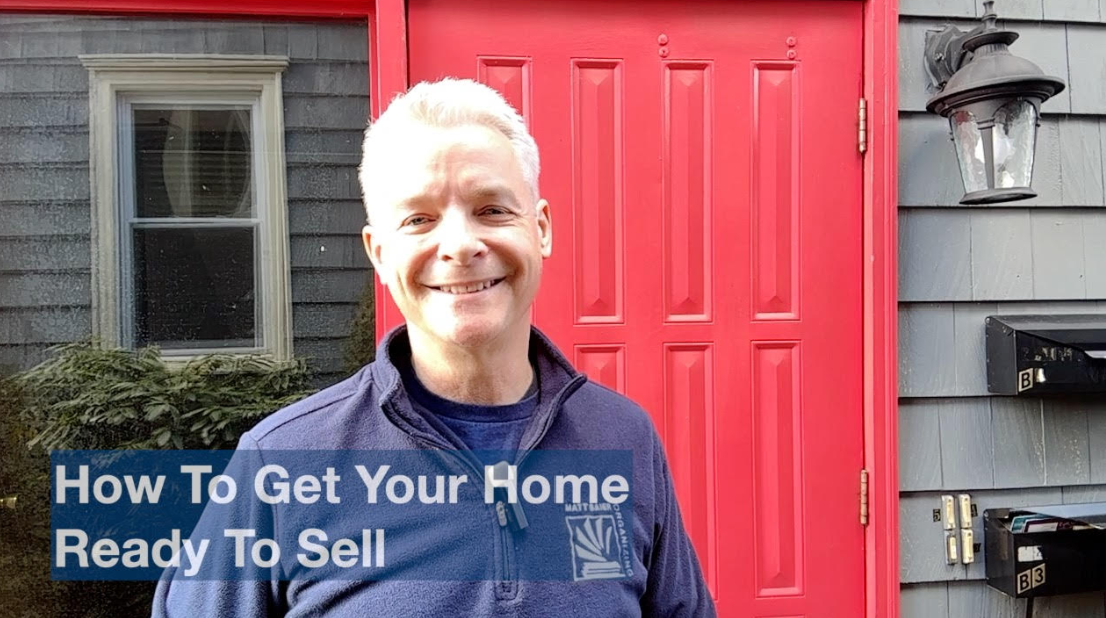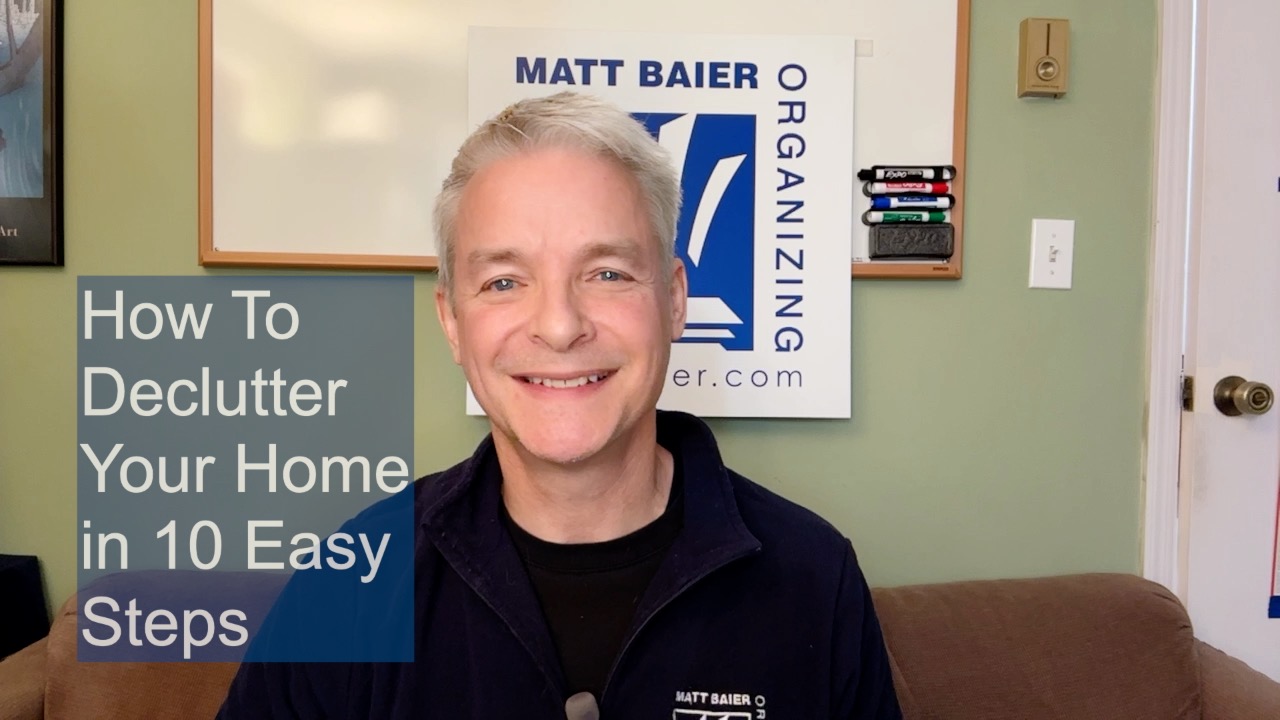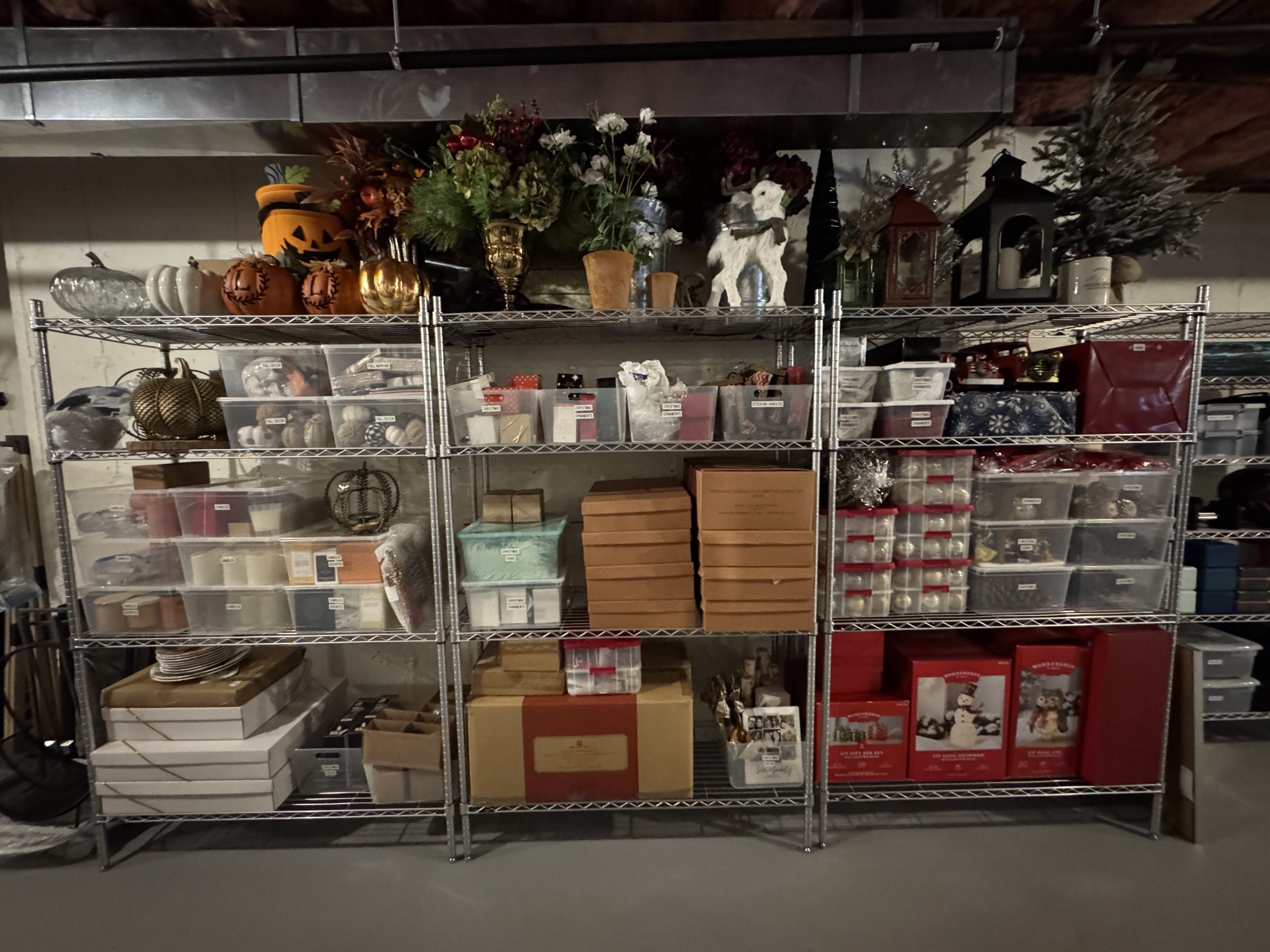Planning ahead plays a major part in making the organizing and unpacking in your new home easier. However, even if you didn’t have much time for planning, relax. There’s still some simple things you can do to make the process as painless as possible. Here are 8 easy tips on day one.
1. Establish an exit zone
We often find clients filling up their garage space with all their full boxes. It’s good to recognize that unpacking is going to be a process. However, it’s not good to clog up the garage. It’s better to get boxes to their appropriate rooms and leave as much space as possible in the garage, for egress. You will have lots of cardboard boxes and wrapping paper coming out. Additionally, you will likely have some discards and donates, despite the pre-move purge.
2. Reserve a processing area
Because unpacking is a process, it is easier to reserve a dedicated processing area. This area should include a good sized table, or other surface. The dining room is often a good candidate. A bedroom can work upstairs, using the bed to sort clothes. The other key ingredient in a processing area is space. So don’t cover the floor with boxes. Stack them up in a separate holding area. Then, systematically empty one box at a time and spread out the contents on your surface.
3. bathroom basics
Have a “bathroom basics” box ready to go and empty it first. Most bathroom items can probably wait, but some need to come out ASAP. These include soap, toilet paper, medication, trashcan, and a shower curtain. If you don’t want the movers using the family hand towels, include a roll of paper towels.
4. kitchen basics
The kitchen has more built-in storage than any other room, so it will take a while to fill up. However, as with the bathroom, it makes things easier to put some basics into place immediately. Get a trash can liner into the trash can. Load the paper towel in holder and place dish soap and surface cleaner by sink. Fill the refrigerator with cold beverages and keep handy snacks for the family. Keep the pet food and water bowl handy for your fur babies. BTW, movers definitely appreciate it if you can keep your dogs secured as they unload boxes. Finally, it’s a good idea to get the coffee maker set up and the water kettle unpacked.
5. create a command center
Before you set up your home office, create a command center. There is a lot of confusion in a new environment. So it’s important to be able to find vital information and key items. A command center should be, well, central. The kitchen usually makes the most sense. Maybe you have a convenient desk. Otherwise, choose a surface near an outlet. You can set up a laptop here and charge your phones here. Keep a checkbook, keys, and a flashlight here. Avoid a spot that is likely to be buried with stuff. The command center is too important for that! This is also a great spot to collect information about the neighborhood, as it comes in. This may include things like menus, maps and business cards.
6. bedroom retreat
Don’t leave the bedroom for the end of the day. After you cover the basics downstairs, take a few minutes to unpack the linens, and make the beds upstairs. You might not feel like doing this now, but you will only be more exhausted at day’s end. This way, when you’re tired, you’re covered. You’ll thank yourself!
7. quantities dictates systems
This advice applies to all organizing systems, but it is particularly relevant in a new home. The layout, space, and configuration is different in every home, so be prepared to re-think where things go. For example, perhaps your last home had a very generous pantry and your new one doesn’t. It may, however, have great storage in the finished basement. If you see that you have a large quantity of holiday and entertaining items, then it’s time to rethink. While they might have fit in the large pantry, now they might be more comfortable in the basement storage. Reserve the new smaller pantry for items you use more often.
8. keep a running plan
Settling into a new home is too big a project to complete in one day, so you must prioritize. Keep a pad and pen (or mobile device) handy to jot down unpacking priorities as they come up. It is very easy to confuse not wanting to forget something with the need to do it now. This 8-point list covers the unpacking basics, so you need to cover them first. Your time and energy are limited, so don’t get distracted by new to-dos that pop into your head.
Write them down, then get back on track. At the end of the day, review your notes, so you have a plan for the next day.
You don’t appreciate how much you rely on your regular routines, until your first day in a new home. That’s why it’s important to get the most basic items in place first. It’s easy to spend too much time in just one place, but there are a lot of routines to cover. For the next few days, one of those routines will be unpacking, so that process needs to be established immediately.
It can be very overwhelming to get settled in and you may well have other obligations to attend to. If that’s the case, we’d be happy to help.
Please Share With Your Community






